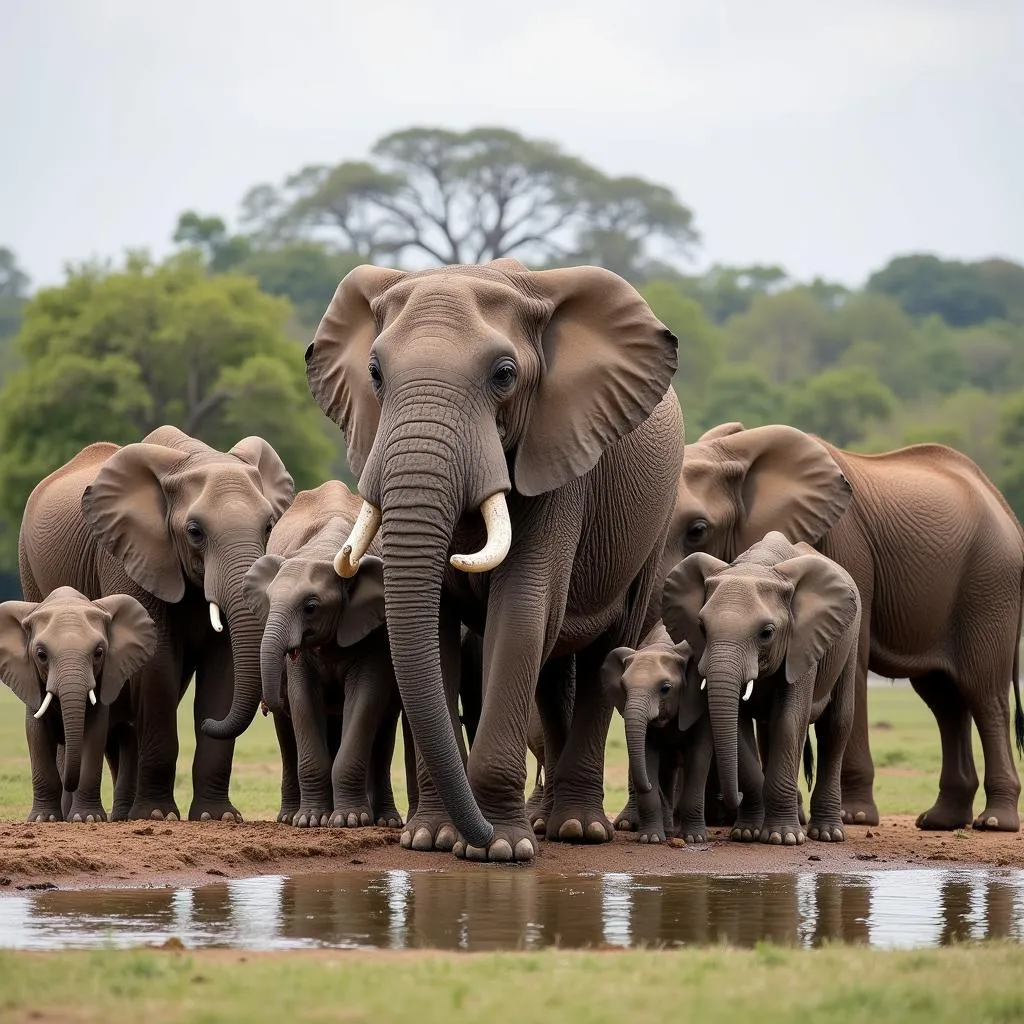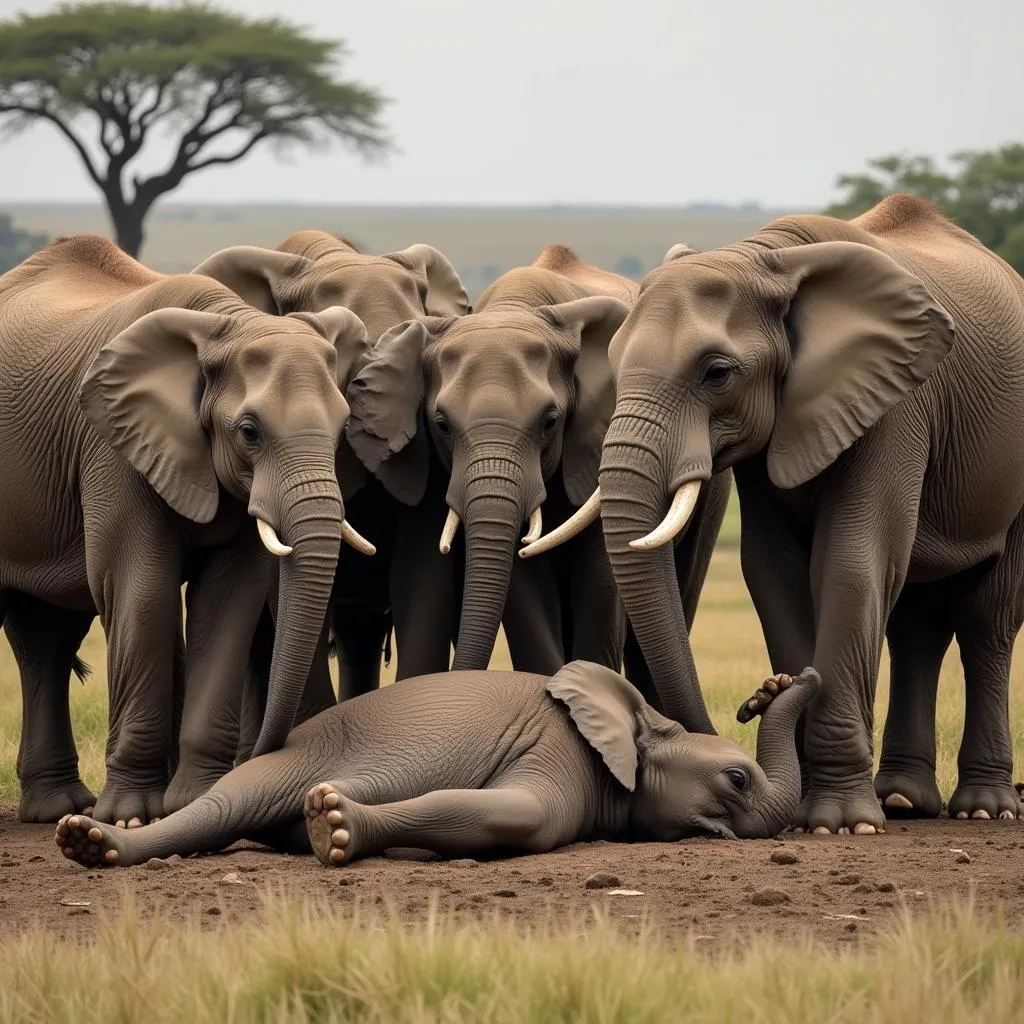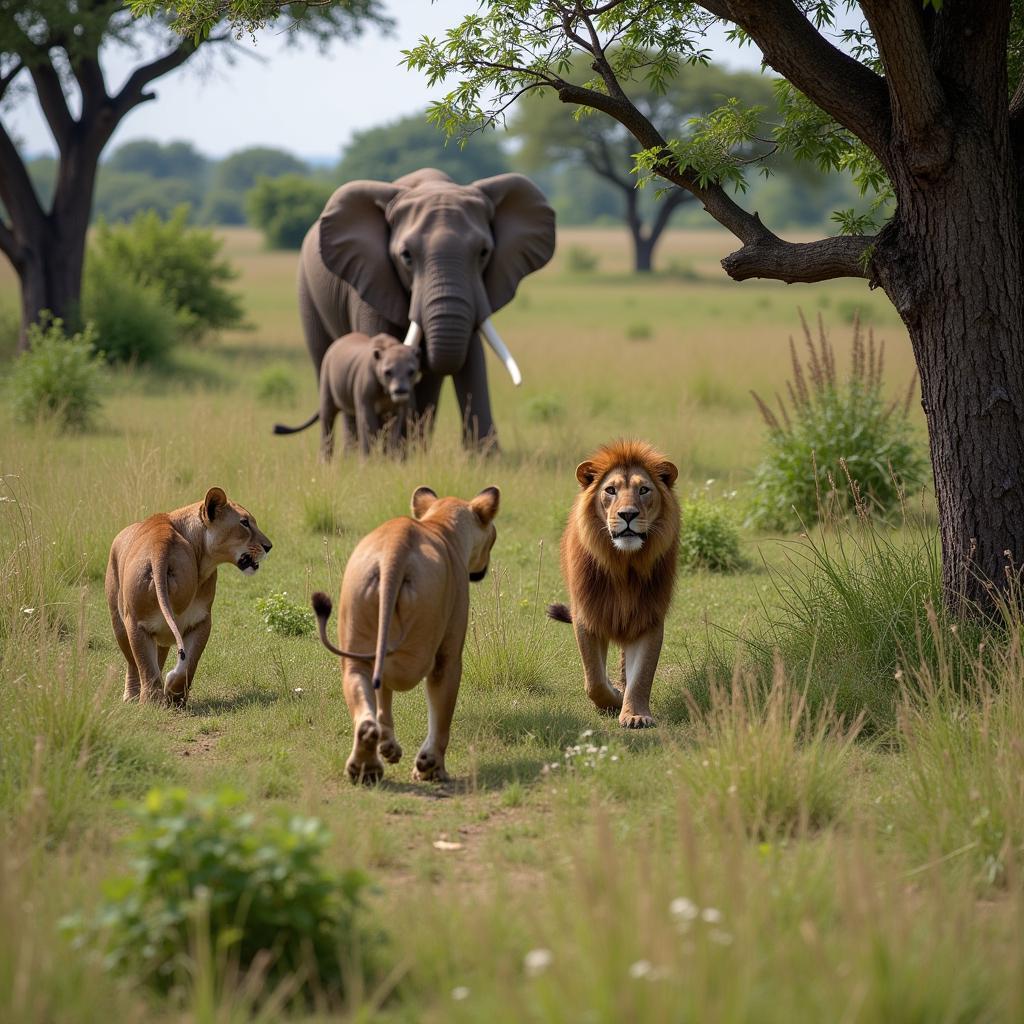African Elephant Culture: Understanding the Giants of the Savanna
African elephants, the largest land mammals on Earth, are more than just magnificent creatures. They are highly intelligent animals with complex social structures and fascinating cultural practices that have been passed down through generations. Understanding African Elephant Culture provides a glimpse into their intricate world and highlights the importance of conservation efforts to protect these gentle giants.
The Matriarchal Society of African Elephants
At the heart of African elephant culture lies the matriarchal structure. Led by the oldest and most experienced female, the matriarch, family groups consist of several generations of related females and their young calves. The matriarch holds a wealth of knowledge, guiding her family to food and water sources, navigating migration routes, and teaching essential survival skills. Her leadership is crucial to the well-being of the entire group, demonstrating the vital role females play in elephant society.
The Importance of Family Bonds
Family bonds run deep in African elephant culture. Calves, especially females, are raised collectively within the group, receiving care and guidance not only from their mothers but also from aunts, sisters, and grandmothers. This strong family unit fosters a sense of community and provides young elephants with the social interaction and learning opportunities essential for their development. Witnessing the affectionate gestures, playful interactions, and unwavering support within elephant families is a testament to their profound social intelligence.
 African elephant family gathering at a watering hole
African elephant family gathering at a watering hole
Communication: Speaking the Language of Elephants
While we might not understand their trumpeting calls or rumbling rumbles, African elephants have developed sophisticated ways to communicate with one another. They use a combination of vocalizations, body language, and even seismic vibrations sensed through their feet to convey messages across long distances. This complex communication system allows them to coordinate movements, warn of danger, express emotions, and strengthen social bonds within their herds.
The Power of Infrasound
One of the most intriguing aspects of African elephant culture is their use of infrasound, sounds too low for humans to hear. Elephants can detect and interpret these low-frequency calls from miles away, allowing them to communicate over vast distances and maintain contact with other herds or individuals. This hidden language adds another layer to their complex communication system and highlights their remarkable adaptation to the African savanna.
Culture of Remembrance: Honoring Their Own
African elephants exhibit a profound awareness of death and display mourning behaviors that are both touching and indicative of their intelligence. When a member of their herd dies, elephants will often gather around the body, touching it with their trunks and feet in a display of grief and farewell. They may also remain with the deceased for days, covering the body with leaves and dirt, a testament to the strong social bonds and empathy within elephant society.
 African elephant mourning ritual around a deceased herd member
African elephant mourning ritual around a deceased herd member
Threats to African Elephant Culture
Sadly, the rich cultural heritage of African elephants faces growing threats. Poaching, habitat loss, and human-wildlife conflict are pushing these magnificent animals towards extinction. As their numbers dwindle, so too does the wealth of knowledge and cultural traditions passed down through generations.
Protecting African elephants is not just about saving a species but preserving a unique and irreplaceable culture. Supporting organizations involved in anti-poaching efforts, promoting responsible tourism, and advocating for elephant conservation are crucial steps in ensuring these gentle giants continue to roam the African savanna for generations to come.
FAQ about African Elephant Culture
Do elephants really have funerals?
While not a funeral in the human sense, elephants do display mourning behaviors around deceased herd members, touching the body, covering it with vegetation, and remaining nearby for days. This suggests an awareness of death and a sense of loss.
How long do elephants live?
African elephants have an average lifespan of 60-70 years in the wild, similar to humans. However, threats like poaching can significantly shorten their lifespan.
Delve Deeper into African Culture
This is just a glimpse into the captivating world of African elephant culture. For more insights into the diverse cultures and captivating wildlife of Africa, explore our other articles on Omenka Magazine:
- Discover the heartwarming story portrayed in the African doctor film.
- Learn about the unique dynamics of African Christian dating and relationships.
- Explore the emerging world of African Bollywood and its cinematic influences.
Contact us at +255768904061, kaka.mag@gmail.com or visit us in Mbarali DC Mawindi, Kangaga, Tanzania. Our dedicated team is available 24/7 to assist you.
